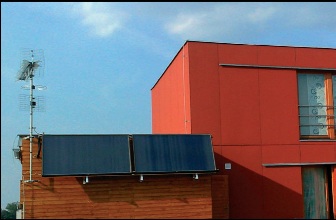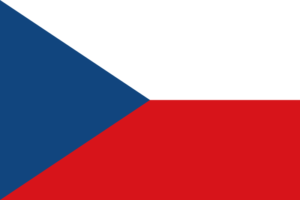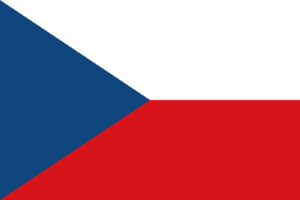Czech Republic: Residential Subsidy Scheme until 2021, More Eligible Technologies
February 8, 2016
 After two shorter application periods, the Czech residential subsidy scheme Nova Zelena Usporam (New Green Savings) started into the third round on 22 October 2015 and is planned to run until the end of 2021. Whereas the first round had Czech Koruna (CZK) 1.9 billion allocated to the programme (April to December 2014) and the second one had to be content with CZK 0.9 billion (May to July 2015), there is now a total budget of CZK 27 billion, corresponding to CZK 4.4 billion per year. In absolute figures, it seems like an increase, but in view of the larger number of subsidised technologies, it is rather a budget reduction. Photovoltaic systems and connections to district heating and heat recovery are among the newly supported technologies. The good news for solar thermal system investors: There is no longer a requirement for an energy audit of the building before solar space heating is purchased. The first and second round required this audit in case of a combi system.
After two shorter application periods, the Czech residential subsidy scheme Nova Zelena Usporam (New Green Savings) started into the third round on 22 October 2015 and is planned to run until the end of 2021. Whereas the first round had Czech Koruna (CZK) 1.9 billion allocated to the programme (April to December 2014) and the second one had to be content with CZK 0.9 billion (May to July 2015), there is now a total budget of CZK 27 billion, corresponding to CZK 4.4 billion per year. In absolute figures, it seems like an increase, but in view of the larger number of subsidised technologies, it is rather a budget reduction. Photovoltaic systems and connections to district heating and heat recovery are among the newly supported technologies. The good news for solar thermal system investors: There is no longer a requirement for an energy audit of the building before solar space heating is purchased. The first and second round required this audit in case of a combi system. Photo: Propuls
It was on 21 October that the Ministry of Environment of the Czech Republic sent out the press release, informing the public about the long-term subsidy scheme financed by selling emission reduction certificates – so-called Assigned Amount Units (AAUs). The ministry had set a budget of CZK 0.52 million until the end of 2015 and an additional CZK 2.85 billion for 2016. “We created a stable and predictable programme for several years to come. So today, we can announce a call which will last until 2021 and should avoid major changes to the programme,” the Minster of the Environment, Richard Brabec, was quoted as saying in the press release.
The press release also mentions “another great new feature”: residential photovoltaics systems now receive funding between CZK 55,000 and CZK 100,000 – depending on their size. The grant level for solar water heaters of CZK 35,000 and for combi systems of CZK 50,000, however, will remain at their first and second phase levels (for more details, see the database of incentive programmes).
Energy efficiency measures and renewable energies in multi-family buildings are not part of Nova Zelena Usporam, but they are being subsidised by projects run at the same time by the State Environmental Fund – at least, in Prague. According to the fund’s Communications Officer, Lucie Früblingová, multi-family buildings in other parts of the Czech Republic can be supported within the framework of the Integrated Regional Operation Programme by the Ministry of Regional Development. Früblingová has also announced February 2016 as the month for publishing the next multi-family housing call in Prague. The first call between May and October 2015 closed with 260 submitted applications, of which seven incorporated the installation of a solar thermal system. This is a rather small share of 3 %.
3,784 subsidised solar water heaters in first two phases
The share of solar thermal in the residential programme is significantly higher than in the multi-family housing programme. According to the State Environmental Fund, round about 2,660 applications among the total of 6,100 included a solar water heater (44 %) in the first phase. In the second programme stage, there were 1,124 applications subsidising a solar thermal system, out of a total of 4,322 (26 %). According to Früblingová, the share went down from 44 to 26 % because partial insulation was included in the eligible technology list, increasing the number of applications in this area while decreasing the number of solar water heaters. In all probability, the share of solar thermal grants will drop even further during the third phase, which is the first one including photovoltaics as an eligible technology – also because some market players have already confirmed that the paperwork required for New Zelena Usporam has not been reduced.
More information:


